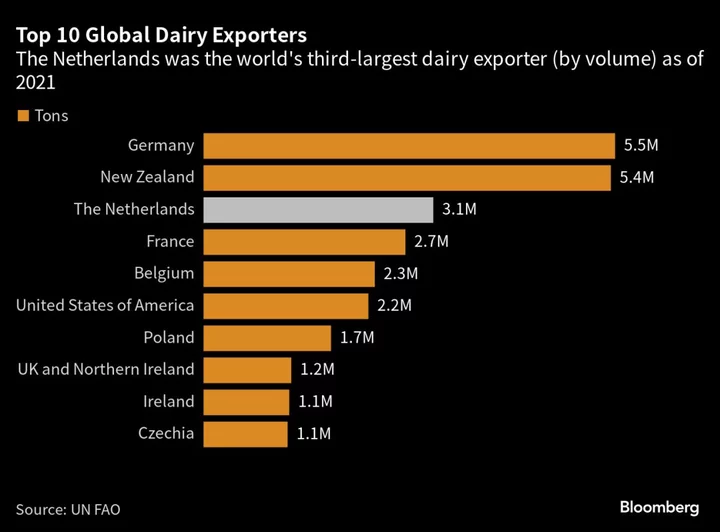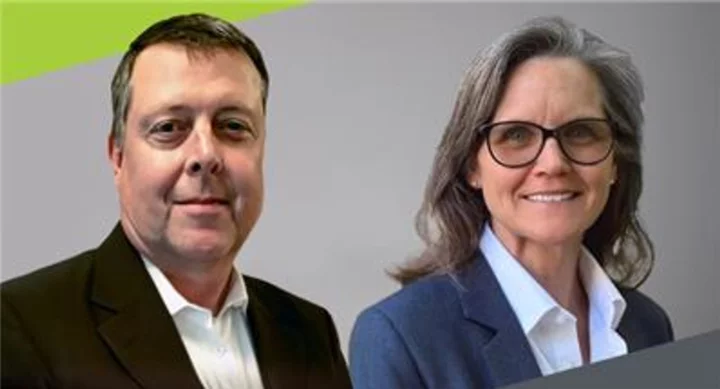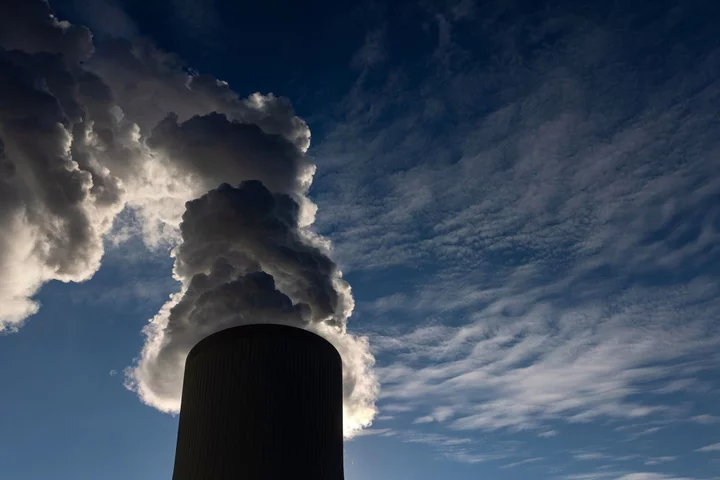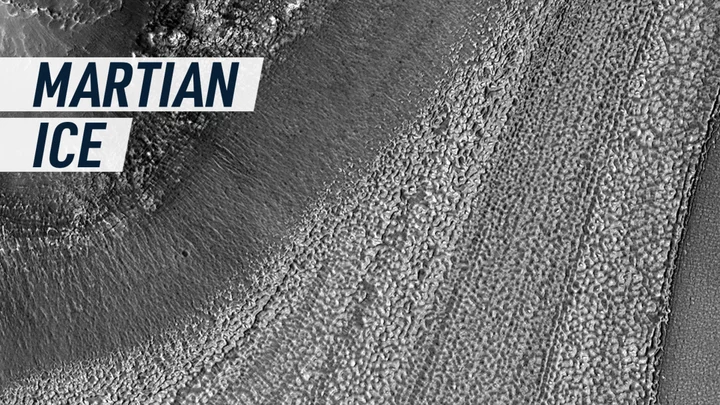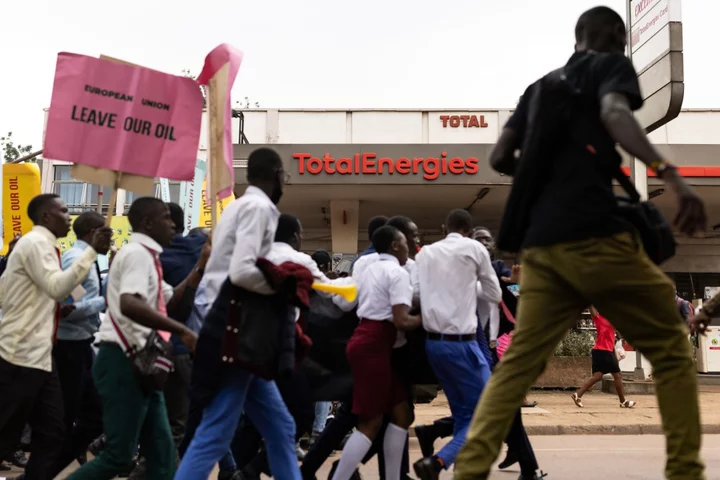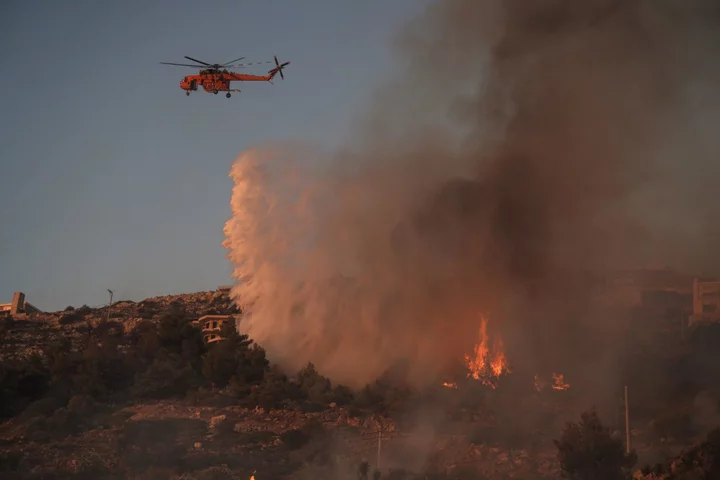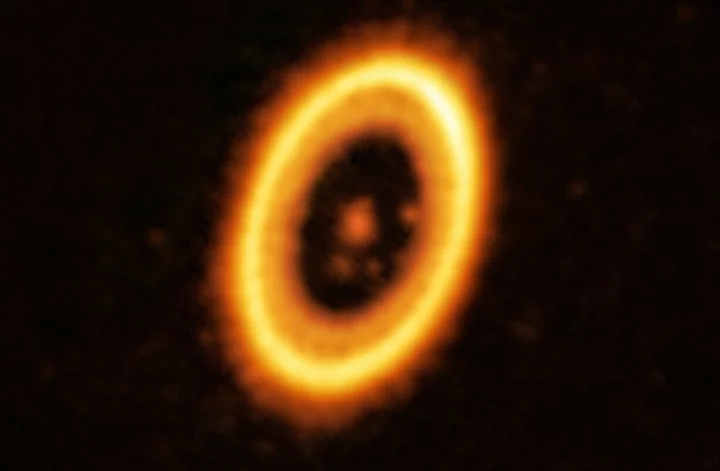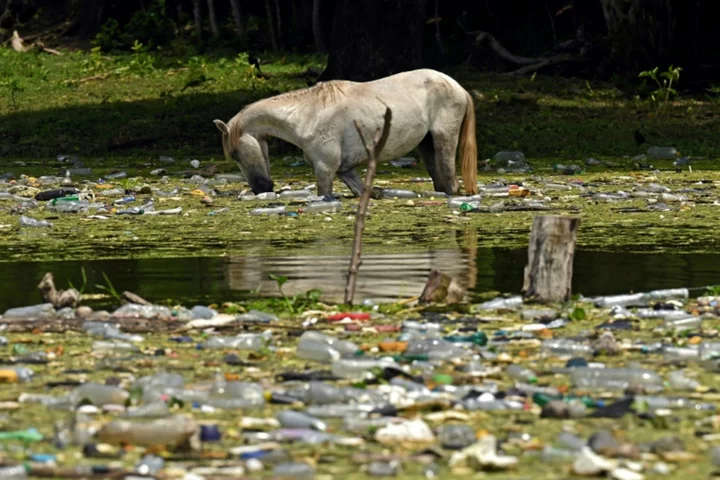One of the world’s biggest agricultural lenders is urging farmers on its home patch to go organic or cut output, as political pressure and ecological devastation force a dramatic change of tack.
Cooperatieve Rabobank UA pledged in June to lend a further €3 billion ($3.3 billion) to ease the transition for 50,000 farmers in the Netherlands — the world’s No. 2 agricultural shipper after the US. While the bank already counts 80% of those farmers as clients, it’s also appointed one of their own to guide them through what promises to be a painful farming revolution.
As the Dutch government seeks to halve nitrogen emissions from agriculture by 2030, about 3,000 farms and businesses located near nature reserves are eligible for buyout. The others must adapt or face an uncertain future, according to Alex Datema, a fourth-generation dairy farmer who was appointed by Rabobank in May to manage its agricultural division.
That means using technology to cut nitrogen output, switching to organic farming, relocating or curbing output, said Datema, who has sought to preserve biodiversity on his 70-hectare farm in Groningen, in the north of the Netherlands.
“If there is one place on earth that we figure out the system of farming for the future, that is in the Netherlands,” he said. “Everything is there for a good agriculture, but it has to be different from now. We have to find our way to an agriculture that does not harm the environment.”
The urgency of making that transition was underlined by the intensifying heat, fires and floods battering the Northern Hemisphere this summer, which scientists believe would be “virtually impossible” without climate change. While farmers are often victims of global warming, the food-production system also generates about 31% of global greenhouse gas emissions.
In the Netherlands, where almost half the country is used for agriculture, cattle and fertilizers are key sources of damaging nitrogen emissions, while cows also emit planet-warming methane.
To meet its climate goals, the Dutch government is targeting a shift to more sustainable production. That, according to Rabobank, could mean 30% fewer cows within 15 years, and milk exports dropping by as much as a fifth.
Datema’s challenge got harder after the collapse of the ruling coalition put discussions on the future of Dutch farming on ice. While more than 200 farmers have registered for the state buyout, many are reluctant to sell businesses that have been run by their families for generations. The buyouts also need to be part of a broader policy, according to Datema, who also used to chair nature organization, BorenNatuur.
The range of solutions being pursued by Dutch farmers varies, with some supplementing their incomes by selling their own products, while others are embracing new technologies. That includes trials of Rabobank and FrieslandCampina’s Lely Sphere manure handling system, which converts nitrogen emissions into fertilizers. Others are using robots and lasers to eliminate weeds, as an alternative to spraying pesticides on crops.
Rabobank, founded by a group of farmers in the 1900s, feels an obligation to facilitate a more sustainable approach, Datema said. As the largest financier of the agricultural sector in the Netherlands, the bank has faced criticism from environmental groups like Greenpeace for supporting intensive animal farming and its role in the nitrogen crisis.
“We have to take steps back to build a clear future for agriculture and that’s a painful process,” he said. “We can try to find out how you can combine producing a lot of food per hectare without harming the environment, by saving biodiversity and with it being good for the climate.”

